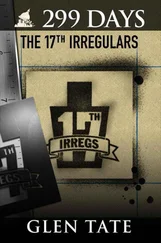As an insider, Jeanie was one of the people who got the 7:00 a.m. morning briefing. She was starting to actually look forward to the morning briefings. This was a fascinating time to be alive, and she was right in the middle of it.
Jason was giving the briefings every morning. He was an interesting guy, who graduated from Yale and worked in Washington D.C. for several years for the State Department. He had only recently come out to Washington State. Jeanie thought it was odd that he had some important federal job, but now had come all the way out to Washington State.
Jason was in his early thirties. He dressed very well, kind of East Coast. He was a handsome man, which reminded Jeanie that she hadn’t talked to her boyfriend, Jim, in several days. They traded texts that said they were OK, but that was about it. She missed him. But, she knew he was doing some important work with his National Guard unit.
Jason started off pretty chipper that morning. “Well, more good news. We have pretty much got I-5 flowing with essential cargo. Same thing with I-90.” That was the interstate going from Seattle east to Spokane and connecting Western and Eastern Washington State. “Local police and, in some cases, National Guard are at the onramps making sure only approved loads move. Like fuel, food, water, medicine, essential parts, communications equipment, military vehicles, those kinds of things.”
Jason put his hand up for emphasis. “The bad news is that civilians can’t travel on the interstates and they’re not real happy about that, which is why law enforcement and the Guard are there. There have been some incidents, but that’s not public information.”
Damned civilians, Jeanie thought. Getting in the way like that. Didn’t they understand how important the government loads were? It was weird. “Conservative” Jeanie, who used to be ostracized for wanting smaller government, was rooting for the government. But she had decided that this government was OK. They were helping people.
Then Jason dropped a bomb on them. “Here’s something that’s definitely not public information. One Guard squad on an onramp in Lewis County was ambushed. Seven killed, three disappeared. Probably taken prisoner.”
“Prisoner?” National Guard troops were being taken prisoner?
What? Was this a war or something?
Jeanie let that sink in. She couldn’t process it, but she was starting to see that there was at least a war-like feel to all of this.
Wait. A squad was ten troops, Jeanie knew from past conversations with Jim. Ten well-armed National Guard troops were ambushed, killed or captured, and there weren’t any bad guys found dead? Either the Guard squad didn’t know how to fight, or the attackers were very good.
Oh crap. Then again, nothing would surprise her anymore. Some once-in-a-lifetime amazing thing seemed to be happening about once an hour.
“Utilities are remaining on, which, I gotta say, is a little surprising,” Jason continued. “We are keeping parts and crews flowing to electrical and water plants. Hell, I mean heck, even sewage treatment is working.”
“Gasoline and diesel are a really big deal,” Jason said. “The price on the open market…well, there isn’t really an open market. I’ve heard up to $100 a gallon, but there isn’t really any place to get gas. We are getting fuel to federal, state, and local fueling stations. Like a city’s gas pump for police cars. Places like that are getting gas. We have diesel, under guard at truck stops, so our vital trucks can refuel at all the usual places. The civilian truckers are not too happy. There have been some problems.” A dozen pissed off truckers were a formidable force, as some truck stop owners, local law enforcement, and Freedom Corps were finding out.
Jason looked at his notes. “Speaking of trucks, we’re commandeering them. Oh, I mean ‘requisitioning’ them—thanks for the word of the day from yesterday, by the way. We don’t have to requisition them too often. Most of the truckers will run a load for us just to get the fuel to get closer to their homes, but they’re not the most trustworthy drivers now that most things they’re hauling have become worth 100 times what they were just a few days ago. We prefer to have people we can trust driving the rigs.” It sounded so stupid for uptight white-collar Jason, with his DC metrosexual clothes and hair, to call a truck a “rig.”
“Food,” Jason said. “That’s a big one, too. The good news is that America has a bunch of food in warehouses. The bad news is that the warehouses are pretty far from where most people live, but with the interstates basically being turned over to the trucks, things are actually getting out. Perishable food is a little sketchy. There have been electricity outages periodically, especially in southern California where a lot of the goods are. But most perishables are OK and many trucks are refrigerated. We are focusing on staples and non-perishables. We’re getting food to government installations, of course,” that went without saying, “and we’re getting grocery stores in larger population centers supplied.”
Jason checked his notes again and said, “More good news. On two fronts: fuel and food. Fuel is scarce but we’re, well, actually the Feds, are arranging for our domestic oil production to get to the refineries. We imported about two thirds of our oil before the Crisis. A good hunk of that came from Canada, who is still selling to us. Another hunk, unfortunately, came from Mexico and, um, obviously, Mexico is having trouble producing anything right now. So we have almost half of our oil from ourselves and Canada. But here’s the good part: oil consumption is a fraction of what it was pre-Crisis. No one is driving. No more fifty-mile commutes from the suburbs to the office. So, we actually have enough oil and refining capacity to run things. Well, essential things. We requisitioned the oil, refineries, and trucks to get the fuel out.”
“There’s a catch, though,” Jason said, looking troubled. “Most of the oil and many of the refineries are in Southern states that aren’t exactly cooperating with the federal government right now. But the oil and refineries are run by companies who are loyal to the United States. More importantly, the Feds have extremely potent military strength in, and around, the oil and fuel facilities. So, bottom line, we have enough fuel now and in the future for vital uses, such as government.”
Vital uses such as government, Jeanie thought. That sounds right. It used to sound wrong. But, now with the Crisis…
Jason took a breath. He smiled as he began discussing the next topic. “Regarding food, this is a political gold mine. The Feds have basically nationalized the farms. Most are owned by big companies who have worked with us before.” That was an understatement. Federal farm policy, and subsidies, had made the giant agribusinesses very wealthy and powerful. They were now returning the favor to their friends in government. “The Feds are buying food on an emergency basis. We’re getting unemployed people to the farms and putting them to work. Kind of a jobs program. The regular farm workers realize they have nowhere else to go and, believe it or not, we actually think we can get some potatoes and wheat out of Eastern Washington and to some places for some processing. Not processing into french fries or chocolate cakes, but some food that people can eat in a few weeks. Mashed potato and biscuit mix and that kind of thing.” Jason smiled even bigger, “Courtesy of your government.” The political message was unmistakable.
His demeanor changed. “Here’s the problem. The smaller areas, rural areas, the hick areas. Well, they’re a second priority for food deliveries, to be honest. We can’t do it all. If you’re on the I-5 corridor, you probably have enough food. If you’re in Hickville, where the teabaggers are pretty much revolting, then you’ll have to wait until the civilized people get a first chance.”
Читать дальше











